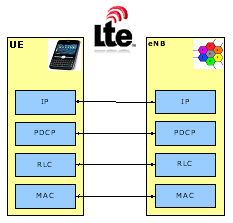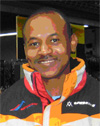Start
Project
Project Overview
Work Packages
Research Groups
|
|
|
Protocol Stack Architecture Research Group
Will focus on Modeling LTE protocol stack using SDL (Specification and Description Language). Optimizing a multi-threaded self-healing protocol stack.
|
 |
Currently upcoming and future mobile devices for systems like the Long Term Evolution (LTE) incorporate multiple wireless connectivity standards to enable the best quality of services in the current environment of the user with a future vision of an all IP based network. Another aspect is the dramatic increase of multimedia applications in the broadest sense including video streaming, video conferencing, and complex graphics. Initiated in 2004, the Long Term Evolution (LTE) project focused on enhancing the Universal Terrestrial Radio Access (UTRA) and optimizing 3GPP’s radio access architecture. Targets are to have average user throughput of three- to four-times the Release 6 HSDPA levels in the Downlink (100Mbps), and two to three times the HSUPA levels in the Uplink (50Mbps).
|
In LTE, the MAC layer handles similar functionalities as with, for example, the HSDPA, including the following:
- Scheduling
- Priority handling
- Retransmissions
- Multiplexing of different logical channels on a single transport channel.
The RLC handles, as in WCDMA, the following functionality:
- Retransmissions in case lower layer (MAC and L1) fails delivery, as done in the case of acknowledged mode of operation of RLC in UTRAN side.
- Segmentation to fit for the protocol data units.
- Providing logical channels to higher layers.
For the PDCP the following is left:
- Ciphering
- Header compression.
In this group we are Modeling LTE protocol stack using SDL (Specification and description Language) combined with C programming language. As well, we are conducting research to develop an optimized, multi-threaded, self-healing protocol stack.
|
Research Group members:
Bruno Vitali, Infineon Technologies AG
Dacian Tudor, "Politehnica" University of Timisoara
David Szczesny, Ruhr-Universitšt Bochum
Irv Badr, Telelogic North America an IBM Company
Maria Elizabeth Gonzalez, Ruhr-Universitšt Bochum
Shadi Traboulsi, Ruhr-Universitšt Bochum
|
|

|
Anas Showk
Institute for Integrated Systems
Ruhr-Universitšt Bochum
ICFO 03/506
Universitätsstr. 150
D-44801 Bochum, Germany
Tel: +49 (0)234/32-29301
Fax: +49 (0)234/32-14102
Anas.Showk@is.rub.de
|
|
|
|





 Project
Partners
Dissemination
Contact
Impressum
Internal area
Project
Partners
Dissemination
Contact
Impressum
Internal area





 Project
Partners
Dissemination
Contact
Impressum
Internal area
Project
Partners
Dissemination
Contact
Impressum
Internal area